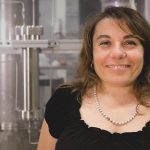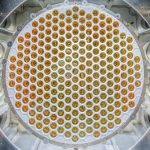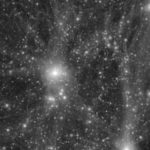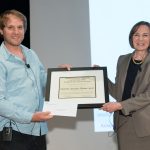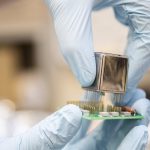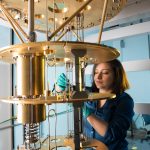From Space.com, July 19, 2019: Fermilab scientist Dan Hooper is quoted in this explainer on dark matter.
dark matter
From Medium, July 19, 2019: Hunting for dark matter, neutrinos, and other elusive signals isn’t just a satisfying endeavor, it’s a way of life for ProtoDUNE scientist Laura Manenti.
As she grew up in the small town of San Pellegrino in the Italian Alps, three things conspired to make Maria Elena Monzani a physicist: a fascination for outer space, a Nobel Prize and a nuclear disaster. Now she prepares an international team to search for clues to one of the biggest scientific mysteries.
Postdoc Guillermo Fernandez Moroni is recognized for his outstanding work on the SENSEI experiment at Fermilab. Dark matter experiments are quite sensitive to unwanted background noise, and Moroni found a way to limit this noise for SENSEI, increasing the sensitivity of the experiment by a factor of a thousand, making it the most sensitive of its kind in the world.
From Science News, June 17, 2019: The particles could be spotted when they slam into electrons or atomic nuclei in the crystals, says Fermilab scientist Noah Kurinsky.
From Physics Today, June 1, 2019: Fermilab scientist Aaron Chou is an author on this article on how microwave cavity experiments make a quantum leap in the search for the dark matter of the universe. The experimental hunt for a dark matter candidate called the axion has been going on for decades, and today, a number of experiments are putting the squeeze on this hypothesized particle.
Scientists are redoubling their efforts to find dark matter by designing new and nimble experiments that can look for dark matter in previously unexplored ranges of particle mass and energy, using previously untested methods. Dark matter could be much lower in mass and slighter in energy than previously thought.
Rakshya Khatiwada is an experimental astrophysicist at Fermilab working on dark matter searches and quantum science. When she’s not developing the newest detectors to look for dark matter, Khatiwada makes a point to engage with the next generation of scientists through informal lunches, talks and webinars.

